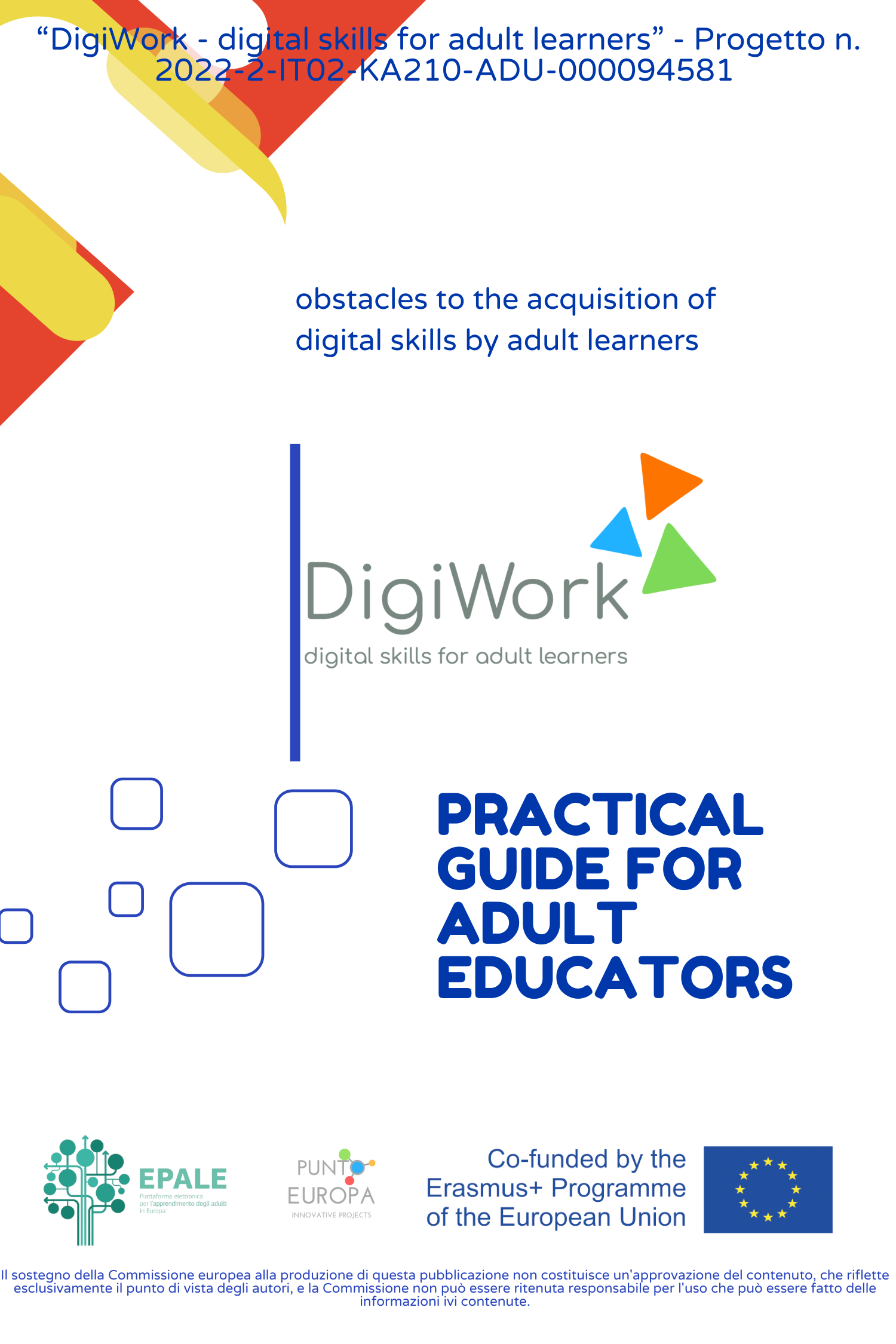Creating the Practical Guide for Research and Focus Groups in DigiWork

Explore how DigiWork crafted a comprehensive guide to streamline research and focus group activities, ensuring effective data collection.
In the DigiWork project, the development of a Practical Guide for conducting research and focus groups was a crucial milestone. This guide was designed to assist adult educators in navigating the complexities of gathering meaningful data and engaging participants in a way that ensures the research is both impactful and actionable. The guide represents the culmination of extensive collaboration among the project partners—Punto Europa (Italy), EduAge (Bulgaria), and Anglo Service (Spain)—each bringing their unique expertise to the table.
The Need for a Practical Guide
Digital skills are increasingly essential for active participation in today’s society, yet many adults, particularly those over 45, struggle to acquire these skills. Recognizing this challenge, the DigiWork project aimed to identify the barriers that prevent adults from developing the necessary digital competencies. The Practical Guide was created to support this effort, providing a structured approach for educators to conduct research that would uncover these barriers and suggest effective solutions.
Structure and Content
The guide is comprehensive, covering all aspects of research and focus group facilitation. It begins with an introduction to the project’s objectives and the importance of understanding the specific needs of adult learners. The guide emphasizes a user-centered approach, grounded in the principles of Design Thinking, which ensures that the research is tailored to the real-world experiences of participants.
1. Research Methodology:The guide outlines a step-by-step methodology for conducting research, starting with the identification of the target group and the formulation of research questions. It provides detailed instructions on how to collect both qualitative and quantitative data through surveys, interviews, and focus groups. This section ensures that educators can approach the research systematically, yielding data that is both reliable and relevant.2. Focus Groups:A significant portion of the guide is dedicated to organizing and conducting focus groups. It offers practical tips on selecting participants, creating a conducive environment for discussion, and effectively moderating the sessions. The guide stresses the importance of creating a safe space where participants feel comfortable sharing their experiences and challenges with digital technologies. Real-life examples from the DigiWork project are used to illustrate successful focus group strategies, providing educators with concrete examples to follow.
3. Data Analysis and Reporting:The guide also covers the critical stages of data analysis and reporting. It includes techniques for interpreting the data collected and translating it into actionable insights. Educators are guided on how to structure their final reports, ensuring that the findings are presented clearly and can be used to inform the development of digital skills training programs. The focus is on making the data meaningful, highlighting key challenges, and suggesting practical solutions.
Impact and Future Use
The Practical Guide developed through the DigiWork project is not just a tool for this specific initiative; it is designed to be a resource that can be adapted and used by adult educators in various contexts. By following the structured approach outlined in the guide, educators can conduct their research more effectively, ensuring that the training programs they develop are truly responsive to the needs of their learners.The creation of this guide is a testament to the successful collaboration among the DigiWork partners, each of whom contributed their expertise to ensure that the final product was comprehensive and user-friendly. The guide’s practical approach ensures that it will remain a valuable resource for educators long after the conclusion of the DigiWork project, supporting ongoing efforts to enhance digital literacy among adults.